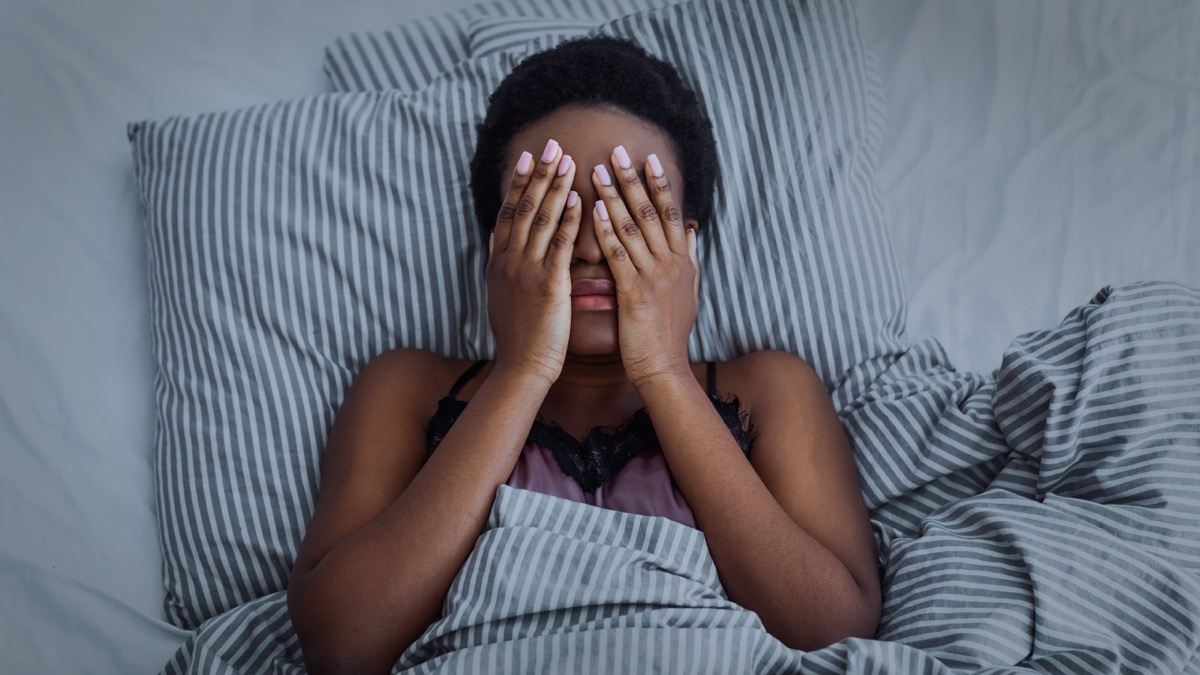What Happens to Your Body If You Drink More Than 2 Cups of Coffee a Day, Doctors Say

With all that polarizes the American public these days, it’s a wonder we can find anything to agree on. Yet according to the data analysts at Safe Betting Sites, who recently reviewed data from Statista surveys, there’s one thing that three quarters of Americans can get behind: drinking coffee every day. Among those who drink java on a daily basis, very few settle for a single cup. The analysts found that 79 percent of daily coffee drinkers consume two or more cups daily when they are at home on a weekday. Nearly one third of respondents admitted to consuming four to six cups of coffee daily—an amount that surpasses standard caffeine intake recommendations.
Best Life reached out to medical experts to learn what exactly happens to your body—both the good and the bad—when you drink more than two cups of coffee per day. Read on to learn how your caffeine habit could be affecting your health for better and for worse, and how to cut yourself off before symptoms start.
READ THIS NEXT: High Blood Pressure? Drinking 2 Cups of Coffee Daily Doubles Heart Disease Death Risk, New Study Finds.
You may feel more alert.

Drinking two cups of coffee per day helps many people feel more focused and awake. According to clinical psychologist Ellen B. Littman, PhD, that’s because “caffeine arouses the central nervous system by stimulating the release of dopamine and other neurotransmitters, and by blocking the absorption of adenosine, which induces sleep.”
Research corroborates the common belief that a morning cup of java will give you a jolt. “Given the expectation that coffee increases alertness and enhances psychomotor functioning, many people seek coffee to counteract fatigue, stay alert by warding off sleepiness, increase cognitive performance, and increase work efficiency,” adds a 2021 study published in Nature Journal. The study concludes that drinking coffee does indeed enhance neurocognitive function by reorganizing the brain’s neural networks.
READ THIS NEXT: Drinking This Popular Beverage Can Slash Your Bad Cholesterol, Experts Say.
You may feel anxious or jittery.

For most healthy adults, caffeine is safe in moderation, says David Seitz, MD, medical director for Ascendant Detox in New York City. However, he notes that it’s important to be aware of how much you’re consuming, and ideally limit yourself to 400 mg per day, or no more than four cups. “This is enough to give you the benefits of caffeine without putting your health at risk,” he explains. However, he notes that some people will experience negative side effects before reaching 400 mg, and if this happens to you, “it’s time to cut back or stop altogether.”
In particular, he points out that many people experience a feeling of agitation after too much coffee. “A small amount of caffeine can help you feel more alert and improve your focus, but too much can have the opposite effect. You may start to feel jittery, anxious, or even experience headaches,” he tells Best Life.
It may affect your heart.

Many people can drink more than two cups of coffee without incident. However, as Seitz says, “it’s important to know your limits and make sure you’re getting the right amount of caffeine to give you the benefits without any of the downsides.” In particular, he warns that consuming too much coffee can cause your heart rate to increase, “which can be dangerous if you have a heart condition.” Similarly, it can raise your blood pressure, which is also considered a cardiovascular risk factor.
However, experts from Harvard Health Publishing note that as long as you drink fewer than five cups daily and are in good health, your coffee intake may actually be protective against cardiovascular disease. In particular, the American College of Cardiology suggests that drinking two to three cups of coffee each day is associated with “the lowest risk of arrhythmias, blockages in the heart’s arteries, stroke or heart failure regardless of whether they had ground or instant coffee.”
You may enjoy some major antioxidant benefits.

Cindy Wilson, a certified nutritionist and founder of Nutri Inspector, agrees that there are some major benefits to drinking a moderate amount of coffee, which she defines as two to four cups. “Coffee is rich in antioxidants, which can help protect the body from oxidative stress and reduce the risk of chronic diseases like heart disease and certain types of cancer,” she tells Best Life.
In fact, according to Johns Hopkins Medicine, drinking dark roast coffee has been shown to decrease breakage in DNA strands, “which occur naturally but can lead to cancer or tumors if not repaired by your cells.” Their experts note that coffee drinkers are 26 percent less likely to develop colorectal cancer.
You may develop acid reflux.

Wilson acknowledges that coffee also has its drawbacks. She says drinking large amounts of coffee, especially on an empty stomach, “can increase the risk of acid reflux and gastrointestinal discomfort due to its acidity and stimulation of gastric acid production.” Add milk into the mix and you may notice your symptoms worsen due to the combination of acidity and fat. Trying low acid coffee may help counteract these unpleasant side effects, while still allowing you to enjoy your daily brew.
For more health news sent directly to your inbox, sign up for our daily newsletter.
Your sleep may suffer.

According to the Sleep Foundation, “Caffeine consumption can make you fall asleep later, sleep less hours overall, and make your sleep feel less satisfying.” This may be especially true if you are sensitive to the effects of caffeine, or if you drink coffee in the afternoon or evening, warns Wilson.
It’s important to note that caffeine may affect your levels of alertness for longer than you realize. The Sleep Foundations notes that you may continue to feel its effects for five hours after finishing your beverage, or longer.
You may be at lower risk of Type 2 diabetes.

Drinking more than two cups of coffee—either caffeinated and decaffeinated—may also reduce your risk of developing Type 2 diabetes. According to Diabetes.co.uk, an online community for those living with diabetes, that’s because coffee contains polyphenols, a type of antioxidant that is widely believed to help prevent inflammatory illnesses, such as Type 2 diabetes.
In addition to polyphenols, coffee contains the minerals magnesium and chromium, the site explains. “Greater magnesium intake has been linked with lower rates of Type 2 diabetes. The blend of these nutrients can be helpful for improving insulin sensitivity, which may help to offset the opposite effects of caffeine,” they write.
Best Life offers the most up-to-date information from top experts, new research, and health agencies, but our content is not meant to be a substitute for professional guidance. When it comes to the medication you’re taking or any other health questions you have, always consult your healthcare provider directly.
- Source: https://www.nature.com/articles/s41598-021-93849-7
- Source: https://www.hsph.harvard.edu/news/hsph-in-the-news/is-coffee-good-or-bad-for-your-health/
- Source: https://www.hopkinsmedicine.org/health/wellness-and-prevention/9-reasons-why-the-right-amount-of-coffee-is-good-for-you
- Source: https://health.clevelandclinic.org/coffee-giving-you-tummy-trouble-try-these-low-acid-options/